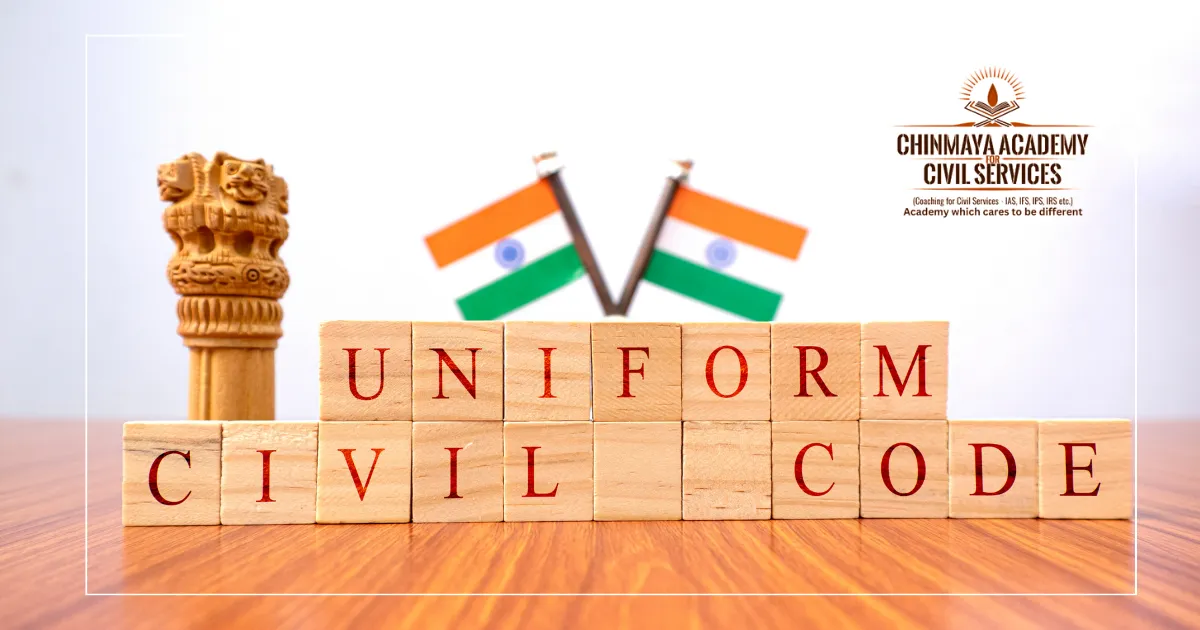
- A UCC would establish a single law for the entire country, governing all religious communities in personal matters such as marriage, divorce, inheritance, and adoption.
- In other words, the UCC is a set of rules/regulations that proposes replacing personal laws based on the scriptures and customs of each major religious community in the country with a unified set that governs all citizens.
Current Situation in India
- Currently, Indian personal law is fairly complex, with each religion following its own set of laws.
- Hindus, Sikhs, Jains, and Buddhists, as well as Muslims, Christians, and followers of other religions, are governed by separate laws.
- Furthermore, diversity exists within communities. The country’s Hindus, Muslims, and Christians are all subject to different laws.
- For example, in the Northeast, there are more than 200 tribes, each with their own unique customary laws.
- The Constitution of India protects local customs of Nagaland . Meghalaya and Mizoram have similar protections.
- The state of Goa is an exception to this rule, as all religions have a common law for marriages, divorces, and adoptions.
Constitutional position.
- According to Article 44 of the Constitution, the state must make every effort to secure a UCC for citizens across India’s territory.
- Article 44 is one of the Directive Principles of State Policy.
- Directive Principles are not enforceable by courts, but they are intended to inform and guide governance.
Previous Efforts
1.Shah Bano judgement.
- The Shah Bano case ruling from the Supreme Court on maintanence in 1986 was regarded as a precursor to UCC.
- However, it was overturned by Parliament, which passed an amendment to maintain the status quo.
2.Incremental changes over the years
- Throughout the decades, there has been incremental change.
- Parliament reformed Hindu succession in 2005, and Christian divorce rights became gender equal in 2001.
- In various judgements, the courts have consistently affirmed women’s rights to maintenance, adoption, and other benefits, thereby strengthening reform in minority communities.
3.The 21st Law Commission’s Position on the Matter
- In 2018, the 21st Law Commission stated that the Uniform Civil Code is neither necessary nor desirable at this time.
- It advocated for the reform of all religions’ family laws through amendments and codification of certain aspects to make them gender-neutral.
- It went on to say that cultural diversity could not be compromised to the point where our desire for uniformity becomes a threat to the nation’s territorial integrity.
What Is the Need for UCC?
1.To promote national unity.
- The existence of religious-based personal laws has historically restricted India’s progress towards nationhood.
- These laws keep the country divided into watertight compartments in many areas of life.
- A uniform law created and made available to all would promote national unity.
2.various personal laws are put to subversive use.
- There have been reports of Hindus converting to Islam, as bigamy is legal under Muslim personal laws in the country.
3.To promote gender justice.
- Gender justice requires a uniform civil code. Women’s rights are usually limited by religious law, whether Hindu or Muslim.
- Not within the scope of religious activities
- Inheritance, marriage, divorce, and other legal issues are unrelated to religious activities.
- As a result, any regulation addressing these issues would not constitute an infringement on the religious freedom guaranteed by Article 25.
4.Vision of Constitution Makers
- The drafters of the Constitution envisioned enacting UCC in the future so that everyone, regardless of religion, would be subject to the same set of civil laws.
- The enactment of the UCC is required to realise this dream.
Why is there opposition to UCC?
1.Diversity cannot be sacrificed for uniformity.
- The imposition of UCC would mean overlooking the diversity of Indian cultures, customs, ethnicity, languages, religious ideologies, and so on.
- From north to south and east to west, each state in India has a distinct culture and outlook on life.
2.Violation of Fundamental Rights
- Marriage, talaq, and polygamy principles are inextricably linked to Muslims’ religious and cultural rights.
- State intervention would constitute a violation of fundamental rights (Articles 25, 26, 29).
- The Constitution recognises the customary laws and procedures prevailing in the Northeast states.
- The constitution, through the VI schedule, recognises the customary laws and procedures that exist in the North Eastern States.
- As a result, practical difficulties will arise in both the formulation and implementation of UCC.
3.Negative impact on India’s communal harmony
- The perception that the UCC encroaches on religious freedom is growing.
- Many people believe that UCC will have a negative impact on India’s communal harmony.
Conclusion
- Following the Shah Bano case, the Universal Civil Code became the focus of communal politics, forcing the then-government to overturn the verdict.
- Hence, we need to follow a bottom-up approach. The demand for UCC must come from the people.
- It can only emerge through an evolutionary process that preserves India’s rich legal heritage, of which all personal laws are equally important.
- A community debate can be started to address this issue. However, these debates must be approached with extreme caution so as not to polarise the nation.




